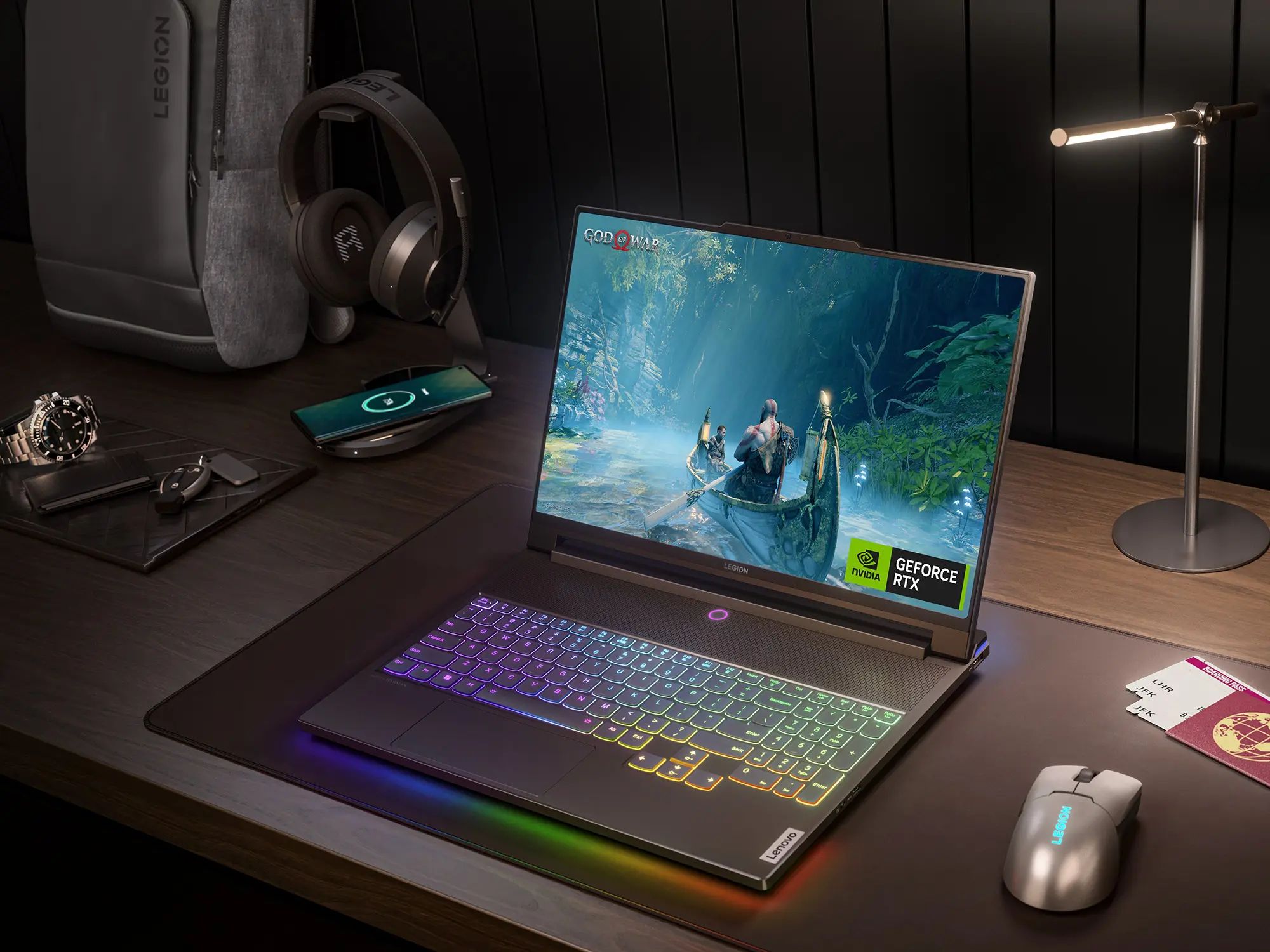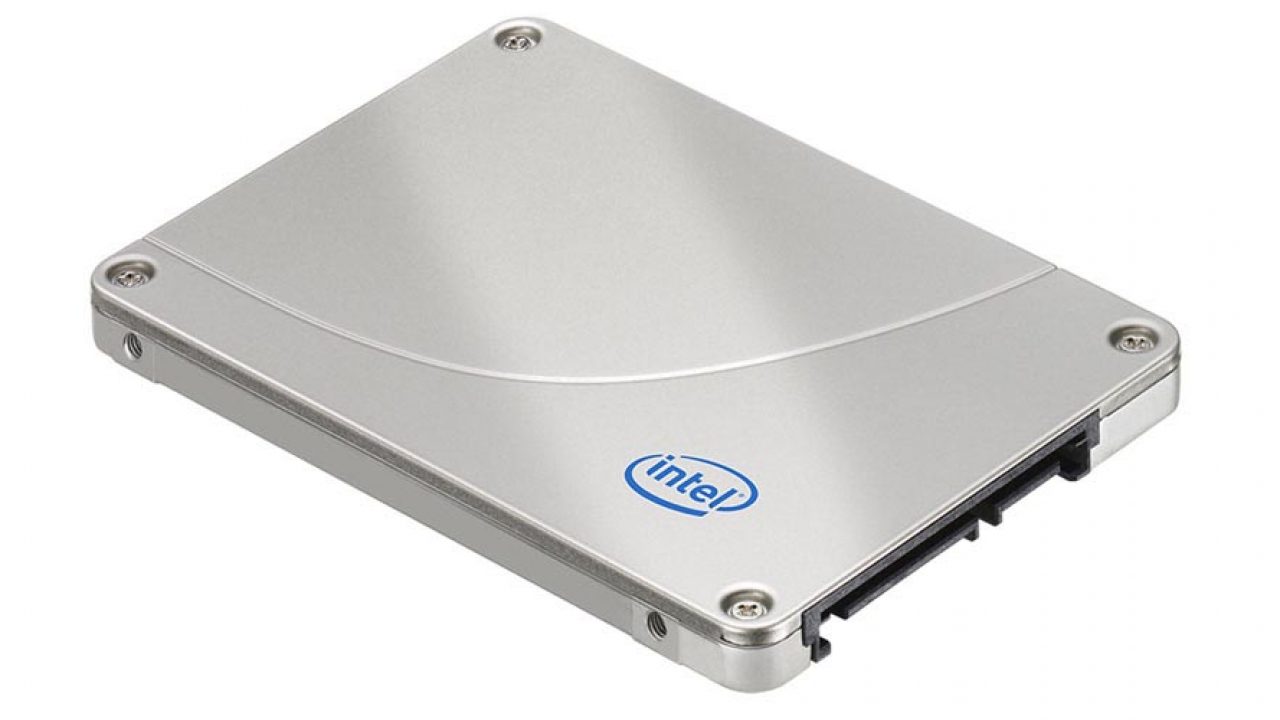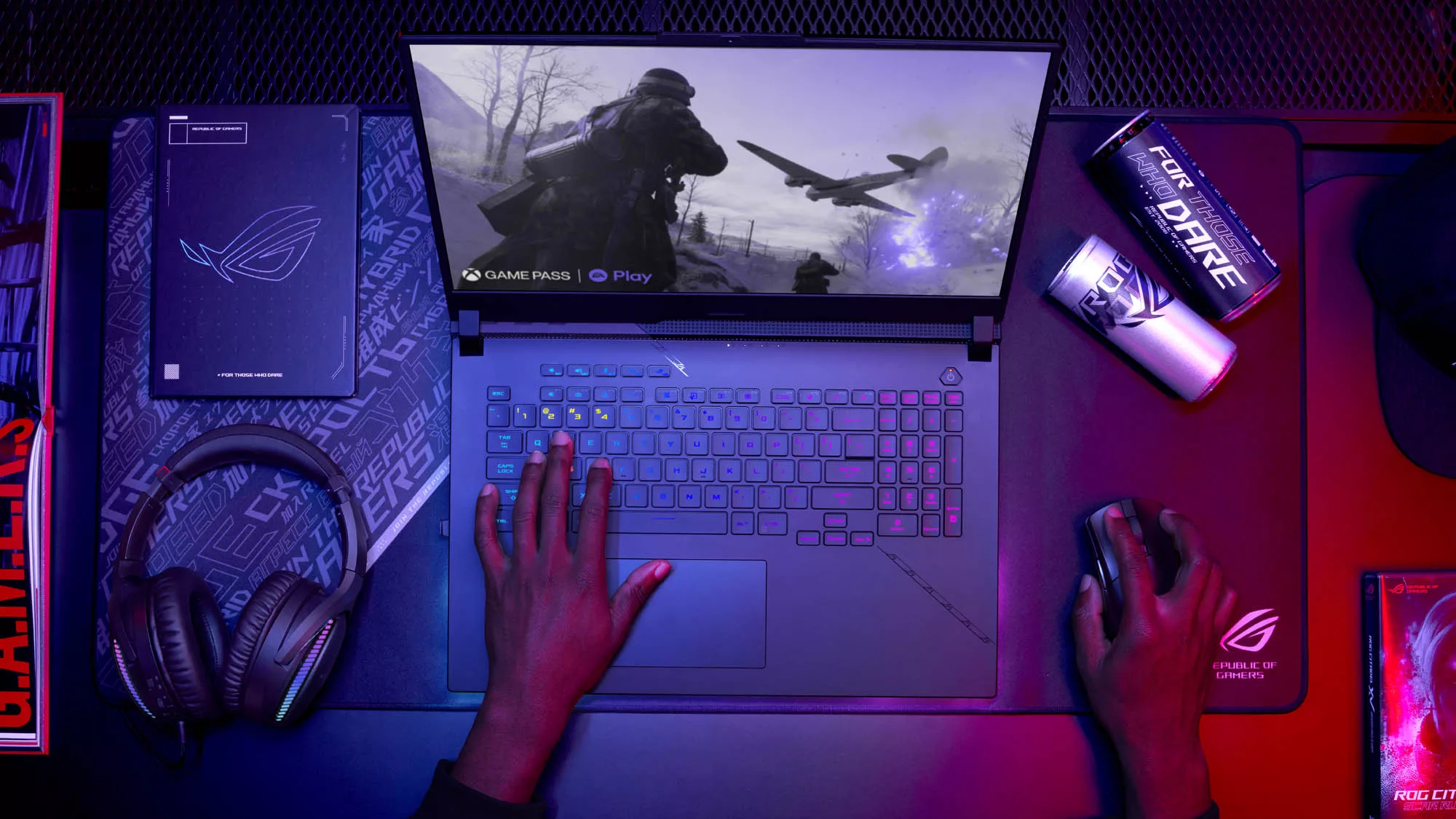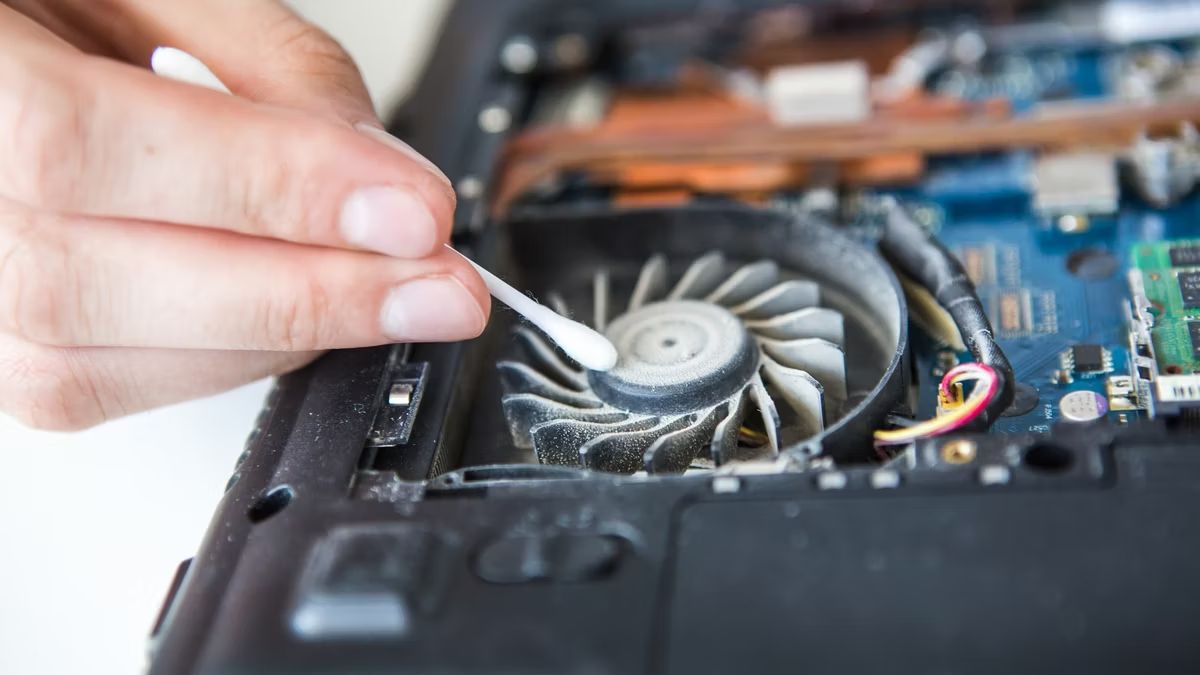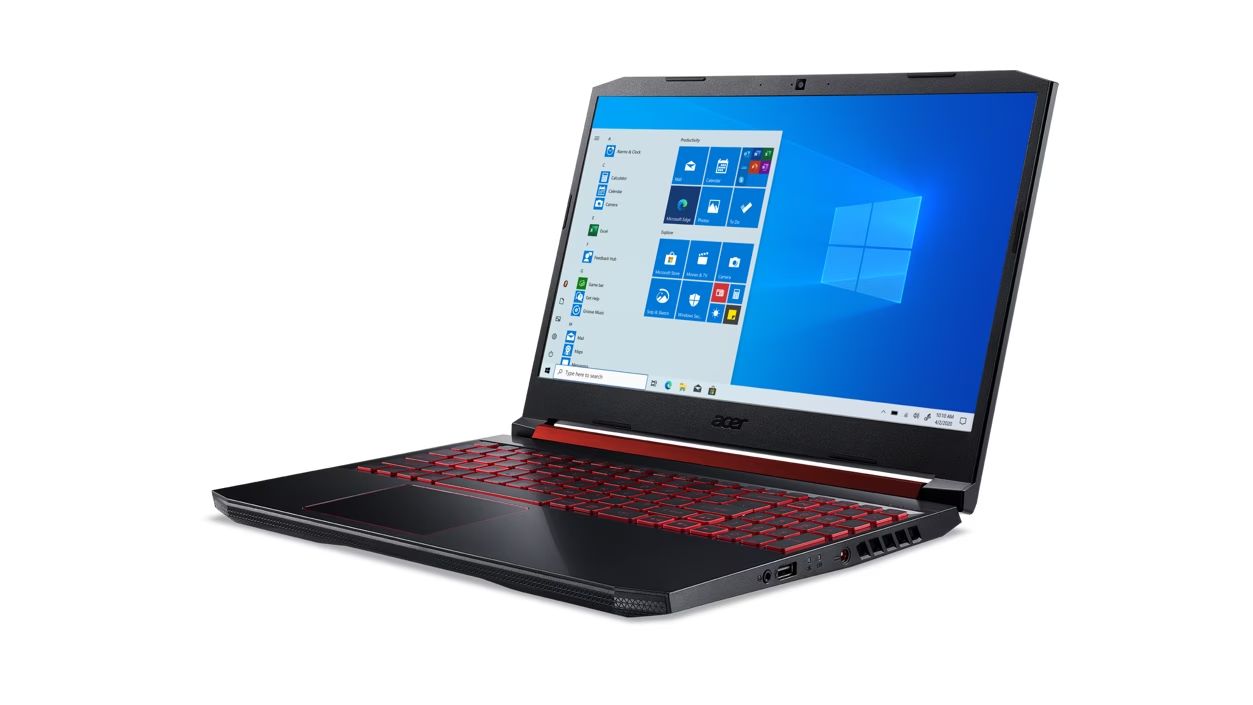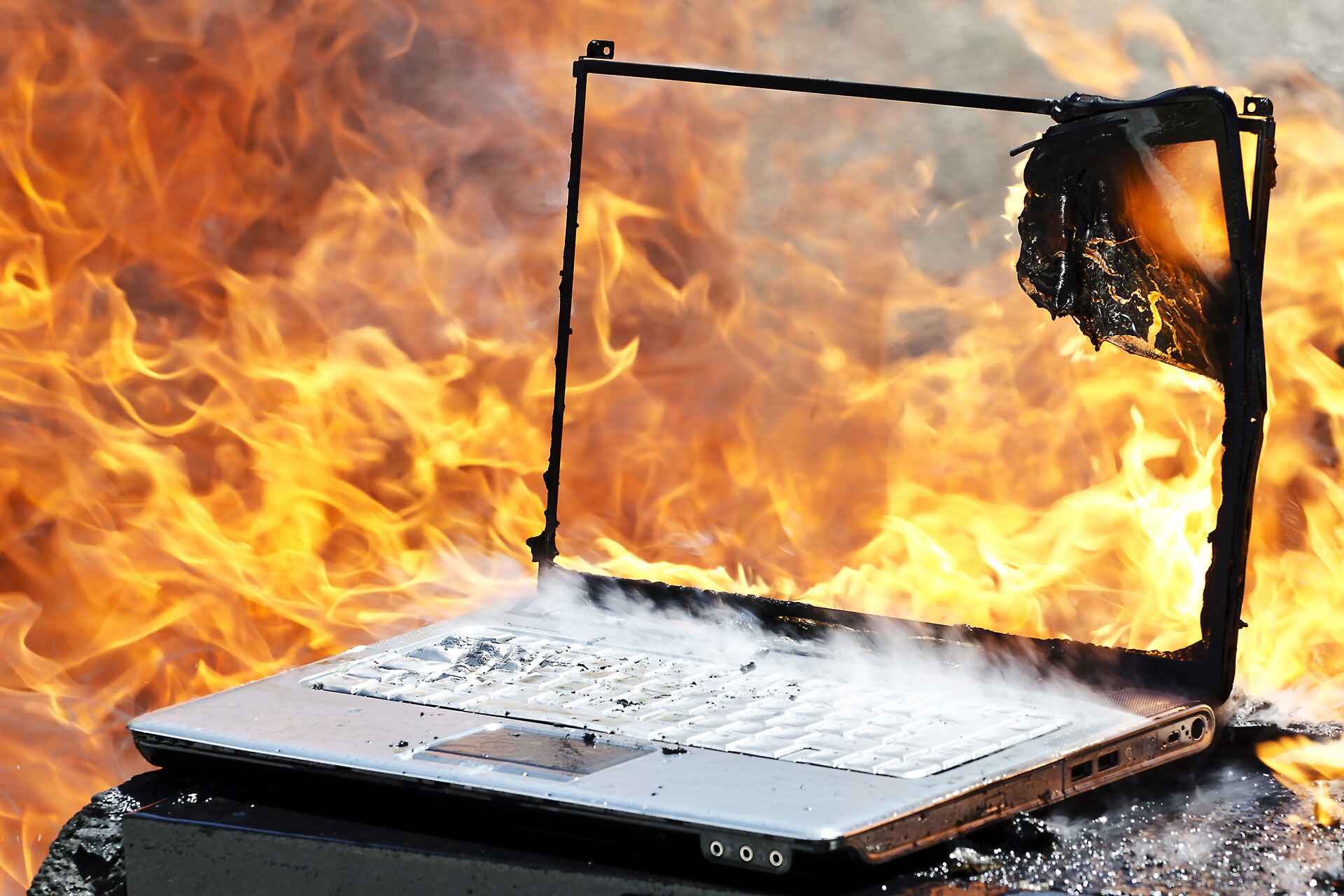Introduction
Gaming laptops are a popular choice among gamers due to their portability and powerful performance. However, one of the common challenges that gamers face with these laptops is the issue of overheating. When you push the limits of your gaming laptop with intense graphic processing and demanding games, it generates a significant amount of heat.
This excess heat can lead to various complications and affect the overall performance and lifespan of your laptop. Therefore, it is essential to understand how much heat a gaming laptop can handle to ensure its optimal functioning and longevity.
In this article, we will explore the causes of heating in gaming laptops, the effects of excessive heat, and provide useful tips on preventing overheating. We will also discuss effective cooling solutions to help you keep your gaming laptop at an optimal temperature during those intense gaming sessions.
So, let’s dive into the world of gaming laptops and understand how to deal with the heat generated by these powerful machines.
What causes heating in gaming laptops?
Gaming laptops typically generate heat due to the combination of powerful hardware components and intensive usage. Here are some of the primary factors that contribute to heating in gaming laptops:
- Processor (CPU) and Graphics Card (GPU): The processor and graphics card are the two major components responsible for processing and rendering graphics in games. When you run graphically demanding games or perform CPU-intensive tasks, these components work harder, generating a significant amount of heat.
- Poor Ventilation: Inadequate airflow is a common issue in gaming laptops that leads to overheating problems. Dust accumulation in the cooling fans and vents can obstruct the airflow, preventing heat from dissipating properly.
- Inefficient Cooling Systems: Some gaming laptops may come with subpar cooling systems that are unable to effectively dissipate heat. Insufficient heat sinks, heat pipes, or small-sized fans may result in inadequate cooling capacity, leading to overheating.
- Overclocking: Overclocking is a technique used by gamers to increase the clock speed of their CPU or GPU to achieve better performance. While it can boost performance, it also generates more heat and puts additional strain on the hardware.
- Inefficient Thermal Design: In certain cases, gaming laptops may have poor thermal design, where the components are not adequately cooled or the heat sinks are not properly positioned. This can lead to inefficient heat dissipation and cause the laptop to overheat.
Understanding the causes of heating in gaming laptops is crucial for effectively managing and preventing overheating issues. In the next section, we will discuss how much heat a gaming laptop can handle and the potential consequences of excessive heat.
How much heat can a gaming laptop handle?
The ability of a gaming laptop to handle heat varies depending on several factors, including the laptop’s design, cooling system, and the components used. Most gaming laptops are built to handle higher temperatures than regular laptops due to the demanding nature of gaming. However, it is essential to understand the heat tolerances to ensure your laptop’s longevity and performance.
Typically, gaming laptops are designed to operate within a temperature range of 35 to 95 degrees Celsius (95 to 203 degrees Fahrenheit). The different components within the laptop also have their own heat tolerances. Here are some general temperature guidelines for common laptop components:
- Processor (CPU): Most CPUs have a maximum temperature threshold of around 90 to 100 degrees Celsius (194 to 212 degrees Fahrenheit). Operating beyond this limit for prolonged periods can lead to thermal throttling, where the CPU reduces its performance to cool down.
- Graphics Card (GPU): GPUs typically have a higher heat tolerance compared to CPUs and can handle temperatures up to 80 to 90 degrees Celsius (176 to 194 degrees Fahrenheit) without major issues. However, operating at such high temperatures for extended periods may reduce the GPU’s lifespan.
- Other Components: The heat tolerances of other components, such as RAM, storage drives, and the motherboard, may vary. However, these components are generally designed to withstand temperatures within the range of 35 to 75 degrees Celsius (95 to 167 degrees Fahrenheit).
It’s important to note that these temperature ranges are guidelines, and it is best to keep your gaming laptop operating at the lower end of the range to ensure optimal performance and longevity. Exceeding the recommended temperature limits for prolonged periods can lead to overheating issues, performance degradation, and potential damage to the laptop’s components.
In the next section, we will discuss the effects of excessive heat on gaming laptops and why it is crucial to prevent overheating.
The effects of excessive heat on gaming laptops
Excessive heat can have detrimental effects on the performance, lifespan, and overall functionality of gaming laptops. Here are some of the potential consequences of prolonged overheating:
- Reduced Performance: When a gaming laptop overheats, it can trigger thermal throttling, a mechanism designed to protect the components from damage. Thermal throttling reduces the performance of the CPU and GPU, resulting in decreased frame rates, lag, and overall sluggishness in games.
- Hardware Damage: Overheating can cause irreversible damage to the laptop’s hardware components. Continuous exposure to high temperatures can degrade solder connections, damage the motherboard, and even lead to the failure of the CPU or GPU. These issues may necessitate expensive repairs or the need to replace the affected components.
- System Instability and Crashes: Excessive heat can cause the system to become unstable, resulting in frequent crashes, freezes, and unexpected shutdowns. These issues not only disrupt your gaming experience but may also lead to data loss if the system crashes while saving or accessing important files.
- Reduced Lifespan: Overheating can significantly reduce the lifespan of your gaming laptop. Continuous exposure to high temperatures places undue stress on the components, shortening their operational life. This can lead to the need for premature replacements or upgrades, adding to your expenses.
- Battery Degradation: Excessive heat can also negatively impact the laptop’s battery. High temperatures can accelerate the deterioration of the battery cells, resulting in reduced battery life and overall capacity. This can lead to frequent recharging and a shorter runtime when gaming on battery power.
Considering the potential consequences of overheating, it is crucial to take proactive measures to prevent your gaming laptop from reaching high temperatures. In the next section, we will discuss effective strategies to keep your laptop cool and avoid overheating issues.
How to prevent your gaming laptop from overheating
Keeping your gaming laptop cool is essential to maintain optimal performance and prevent overheating. Here are some effective strategies to prevent your laptop from overheating:
- Elevate and Ventilate: Place your laptop on a flat, sturdy surface and ensure that there is sufficient space around it for air circulation. Using a laptop cooling pad with built-in fans can help improve airflow and keep your laptop cool.
- Clean and Clear: Regularly clean the dust and debris that accumulate on the laptop’s cooling vents and fans. Use compressed air or a soft brush to remove the dust, allowing for better ventilation and heat dissipation.
- Avoid Obstructing Vents: Be mindful of where you place your laptop during usage. Avoid blocking the vents with objects such as pillows, blankets, or your lap. This will allow the hot air to escape more easily.
- Manage Background Processes: Close any unnecessary background processes and applications that may be running simultaneously with your games. This reduces the overall CPU and GPU load, helping to keep the temperature down.
- Monitor CPU/GPU Temperatures: Use software tools to monitor the temperatures of your CPU and GPU while gaming. This will help you identify if your laptop is running too hot and take necessary actions to prevent further overheating.
- Optimize Game Settings: Adjusting the graphics settings of your games can help reduce the workload on your laptop’s hardware. Lowering the graphics quality, enabling V-Sync, or lowering the frame rate limit can help reduce the heat generated.
- Consider Undervolting or Underclocking: Undervolting reduces the voltage supplied to the CPU or GPU, while underclocking reduces their clock speeds. These techniques can lower power consumption and heat generation without sacrificing too much performance.
- Keep Drivers and Firmware Updated: Regularly update the drivers and firmware of your gaming laptop to ensure compatibility, stability, and optimized performance. Updated drivers can sometimes include performance optimizations that can help reduce heat generation.
By implementing these preventive measures, you can significantly reduce the risk of your gaming laptop overheating and maintain a cooler operating temperature. However, if you find that your laptop is still prone to overheating despite these precautions, it may be worth considering additional cooling solutions.
Cooling solutions for your gaming laptop
If your gaming laptop is still experiencing overheating issues despite implementing preventive measures, you can explore additional cooling solutions to keep temperatures in check. Here are some cooling solutions that can help:
- Laptop Cooling Pad: Investing in a laptop cooling pad with built-in fans can improve airflow and cooling efficiency. These cooling pads provide additional cooling to your laptop and help dissipate heat more effectively.
- Laptop Cooling Stand: A laptop cooling stand elevates your laptop, allowing for better air circulation and heat dissipation. Some stands also come with built-in fans, further enhancing the cooling performance.
- External Laptop Cooler: External laptop coolers are standalone cooling devices that are placed underneath your laptop. These coolers come with multiple fans and offer enhanced cooling capabilities to prevent overheating.
- Replace Thermal Paste: Over time, the thermal paste between your laptop’s CPU and heatsink can dry out, compromising heat transfer. Replacing the thermal paste with a high-quality thermal compound can improve thermal conductivity and help lower temperatures.
- Modify the Fan Speed: Using software utilities or the laptop’s BIOS settings, you can adjust the fan speed to optimize cooling. Increasing the fan speed can help dissipate heat more effectively, but it may result in increased noise levels.
- Custom Fan Profiles: Some gaming laptops allow you to create custom fan profiles using software utilities. This allows you to adjust the fan speed based on temperature thresholds, ensuring efficient cooling during demanding gaming sessions.
- External Cooling Fans: In extreme cases of overheating, you can use additional external fans pointed at your laptop to increase airflow. These fans provide extra cooling and help combat high temperatures.
- Professional Cleaning and Maintenance: If your laptop’s cooling system is severely clogged with dust or showing signs of malfunction, it may be beneficial to seek professional cleaning and maintenance. This ensures proper cleaning of the internal components and repair of any faulty cooling mechanisms.
By considering these additional cooling solutions, you can significantly improve the cooling performance of your gaming laptop. It’s important to choose the solution that best suits your requirements and budget, ensuring a more enjoyable and worry-free gaming experience.
Conclusion
Gaming laptops are powerful machines that generate a considerable amount of heat during intense gaming sessions. Understanding the causes of overheating, the effects of excessive heat, and how to prevent it is crucial for maintaining optimal performance and prolonging the lifespan of your gaming laptop.
By implementing preventive measures like keeping your laptop well-ventilated, cleaning the cooling system, managing background processes, and optimizing game settings, you can significantly reduce the risk of overheating. It is also important to monitor CPU and GPU temperatures and consider advanced techniques like undervolting or underclocking if necessary.
If your laptop still struggles with high temperatures, additional cooling solutions such as laptop cooling pads, stands, external coolers, or modifying fan speed can help improve cooling efficiency. Replacing thermal paste or seeking professional cleaning and maintenance can also be effective in addressing severe overheating issues.
Remember, overheating can lead to reduced performance, hardware damage, system instability, and shortened lifespan. By taking proactive steps to prevent your gaming laptop from overheating, you can enjoy uninterrupted gaming sessions and prolong the longevity of your device.
So, take control of your gaming experience, keep your gaming laptop cool, and unleash the full potential of your gaming adventures!







